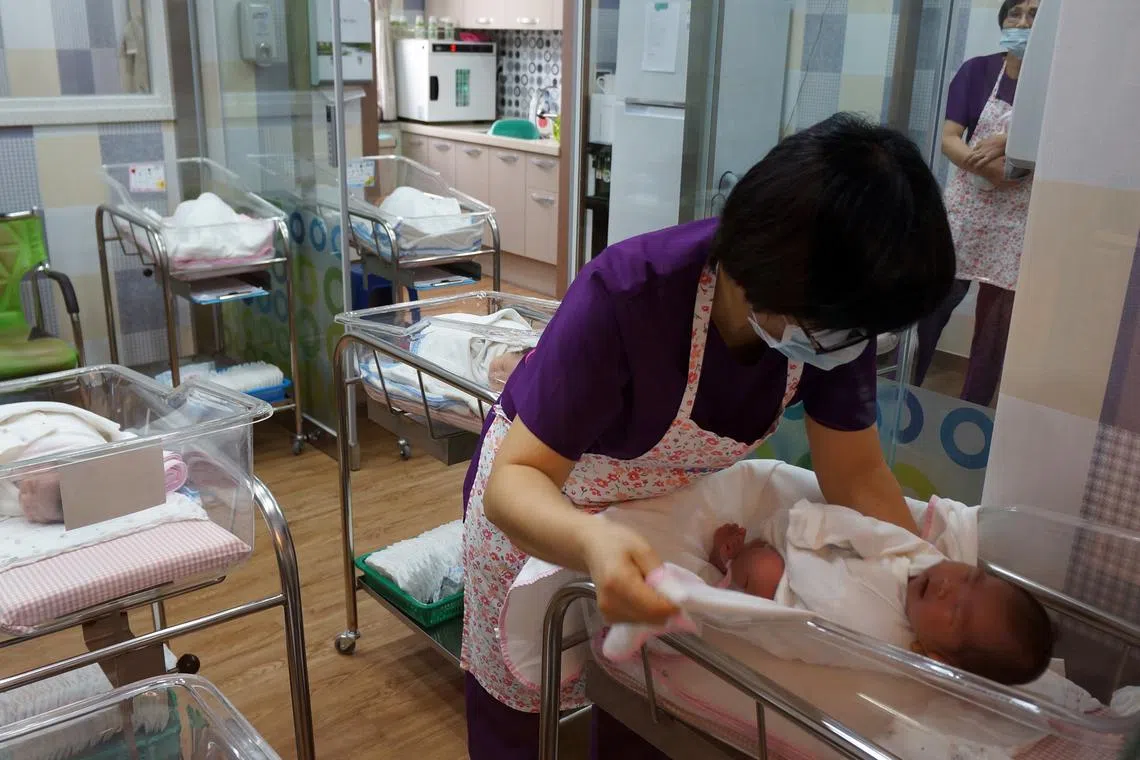Fertility rate in South Korea projected to rise for the first time in nine years
Sign up now: Get insights on Asia's fast-moving developments

South Korea has one of the world’s lowest fertility rates.
PHOTO: ST FILE
Follow topic:
SEOUL – South Korea’s fertility rate is projected to reach 0.74 in 2024, which would mark the first increase in nine years, according to a government body addressing the country’s declining birth rate and ageing society.
Dr Joo Hyung-hwan, vice-chairman of the Presidential Committee on Ageing Society and Population Policy, announced the estimate during a keynote address at the Global Symposium on Low Fertility and Ageing organised by Statistics Korea and the United Nations Population Fund (UNFPA) on Nov 26 in central Seoul.
“Recently, marriage rates have increased for five consecutive months and the number of births has risen for two consecutive months,” Dr Joo said.
“These signs suggest the declining fertility rate may finally be reversing. If this trend continues, this year’s total fertility rate is projected to be 0.74, which would mark a rebound.”
The predicted 0.74 figure would surpass Statistics Korea’s earlier estimate of 0.68 and 2023’s record low of 0.72.
If the estimate holds true, it will mark the first rise in births here since 2015, when the fertility rate was 1.24.
While the projection is an improvement from the previous year, the figure is far below the 2.1 children needed to maintain a country’s population at its current level.
South Korea has one of the world’s lowest fertility rates, and if this downward trend continues, Korea’s population is estimated to halve by the year 2100. The Korean government has been engaged in a range of policy efforts to tackle what it calls a “demographic national emergency.” THE KOREA HERALD/ASIA NEWS NETWORK

